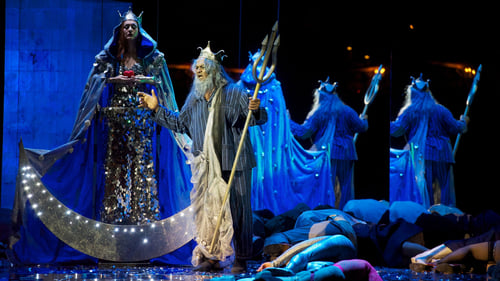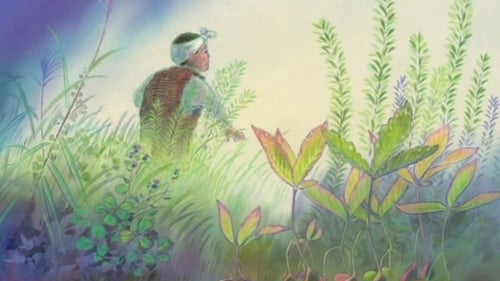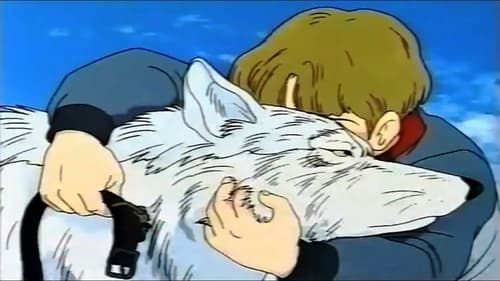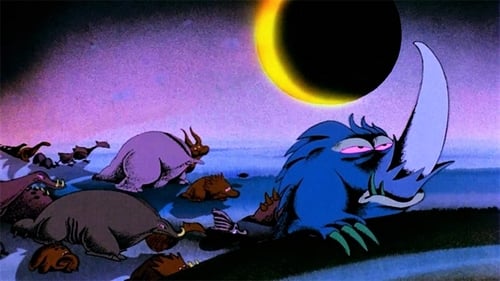Antonín Dvořák
출생 : 1841-09-08, Nelahozeves, Bohemia
사망 : 1904-05-01
약력
Antonín Leopold Dvořák was a Czech composer, one of the first to achieve worldwide recognition. Following the Romantic-era nationalist example of his predecessor Bedřich Smetana, Dvořák frequently employed rhythms and other aspects of the folk music of Moravia and his native Bohemia. Dvořák's own style has been described as "the fullest recreation of a national idiom with that of the symphonic tradition, absorbing folk influences and finding effective ways of using them".

Music
The libretto of the most well known opera by Dvořak, which premiered in Prague in 1901, is inspired by the Czech version of the Central European folktale, one we also know as Undine (1811) by Friedrich de la Motte Fouqué or The Little Mermaid (1837) by Hans Christian Andersen.

Original Music Composer

Original Music Composer
Kristine Opolais “gives a vocally lustrous and achingly vulnerable performance” (New York Times) in the role that helped launch her international career, the mythical Rusalka, who sings the haunting “Song to the Moon.” Director Mary Zimmerman brings her wondrous theatrical imagination to Dvořák’s fairytale of love and longing, rejection and redemption, giving the work “an inspired staging” (Huffington Post). Brandon Jovanovich, Jamie Barton, Katarina Dalayman, and Eric Owens complete “a matchless cast” (New York Times), and Sir Mark Elder conducts “a magnificent rendering of the composer’s lush score (Huffington Post).

Original Music Composer

Music
Documentary on the life and accomplishments of the members of this uniquely talented musical family. The film focuses on the Figueroa family’s history within the context of its creative universe, dating back to the 19th century. Through the use of photographs, historic film footage, recordings, sheet music, newspaper clippings, and posters, the musical trajectory of the family is brought to life and their role in transforming the musical history of Puerto Rico and the world is portrayed.

Music
A twisted gay romance set in the 19th Century picturesque Bohemia telling a tabooed true story of birth of one of the nation's most influential writers, starring Julius Feldmeier. Suspense, laughter, violence, hope, heart, nudity, sex and a happy ending—mostly a happy ending.

Compositor
Renée Fleming sings one of her signature roles, the title character in Dvořák’s sumptuously melodic Rusalka. The story of the opera, which is about a water spirit’s tragic romance with a human prince, is drawn from several folktale sources including Hans Christian Andersen’s “The Little Mermaid.” Star conductor Yannick Nézet-Séguin leads a cast that also includes Piotr Beczala as the handsome Prince whom Rusalka yearns to love; Dolora Zajick as the cackling swamp witch Ježibaba; Emily Magee as the Foreign Princess, Rusalka’s rival; and John Relyea as Rusalka’s father, the Water Sprite.

Music
Framed by the tranquil beauty of a forest near Berlin, Khatia Buniatishvili gives a recital of pianistic masterpieces dappled by the shade of verdant ferns and leafy canopies. As a special treat, her older sister Gvantsa joins her for four-handed works by Dvořák, Brahms, and Piazzolla. Described as a “force of nature”, Georgian pianist Khatia Buniatishvili takes her art into the wilderness with this concert. On a wooden stage, she sits in an earthy concert hall performing works of particular meaning for her, and beloved by audiences the world over. From Debussy’s Clair de Lune to Ravel’s La Valse, from Stravinsky’s Petrushka to Piazzolla’s Improvisations on Libertango, Buniatishvili demonstrates her wide palette of expression and lyric approach to her instrument. Interspersed with the music are intimate interviews of the artist herself in which she discusses on her musical upbringing, her career, and her impressions of the pieces she has chosen to include in the program.

Original Music Composer
A legend of mermaids, mere mortals, and sylvan glades. Be transported to a mystical world of water sprites, witches, and wood nymphs. In exchange for love, Rusalka will relinquish not only her mermaid magic, but also her voice.

Original Music Composer
Antonin Dvorak’s next to last opera draws its substance from the underwater wonderland of little mermaids, Undines and Melusines: the water nymph Rusalka falls hopelessly in love with a prince and, although she is willing to sacrifice her voice to acquire the human form she needs in order to stay with him, the disparity between them proves to be too great. Jaroslav Kvapil’s libretto inspired Dvorak to compose a masterpiece, a compelling opera full of poignant lyricism and dramatic twists. Ádám Fisher and Stefan Herheim masterfully presented this ‘lyrical fairytale’ at La Monnaie in 2008. In this widely acclaimed interpretation, the fairytale elements sometimes assume frighteningly realistic dimensions so that one might see this enchanting production as a psychoanalytical study of male fantasies and female archetypes.

Original Music Composer
The Night of Taneyamagahara is an anime short film directed by Kazuo Oga and released by Studio Ghibli. A DVD version was released for Japan on July 7, 2006.

Music
A gray wolf raised on a farm kills the family dog, and to save him from being destroyed, a boy named Lasset makes a trek through the wilderness with the wolf to a wilderness sanctuary 300 miles to the north. The BGM in the film consists entirely of Dvorak's Serenade for Strings, making it perhaps the only anime since Gauche the Cellist to make use of a single piece of classical music as the soundtrack. The plot of the film is simple and the outcome obvious, but the atmosphere of the film is genuine, and it is very moving in parts thanks to Dvorak's music (which is scored entirely for the most emotional of the instrument groups, the strings). This is a straightforward drama about the friendship between a boy and his wolf, and it pushes all the buttons you'd expect, but it's very enjoyable despite all that.

Original Music Composer

Original Music Composer

Writer

Director

Original Music Composer
In this work, Geneviève Hervé realizes her first video-painting with the first electronic portraits of her muse Pascale Ogier, and was included in a Houba Houba section of 'Les Enfants du rock' (January 1982)

Music
This short animation film, which is part of the series Musikalische Arabesken (Musical Arabesks), is a colorful and expressionistic interpretation of Antonin Dvorák’s Humoresque played in a modern version by the Jo Kurzweg Orchestra.

Original Music Composer
Three arias from Antonín Dvořák´s fairytale opera Rusalka turned in to a movie, sung by Gabriela Beňačková (Rusalka), Libuše Márová (Witch), René Tuček (Hunter).

Music
The film is a parody of Disney's Fantasia, though possibly more of a challenge to Fantasia than parody status would imply. In the context of this film, "Allegro non Troppo" means Not So Fast!, an interjection meaning "slow down" or "think before you act" and refers to the film's pessimistic view of Western progress (as opposed to the optimism of Disney's original).

Music

Music

Opera

Music

Original Music Composer
The historic Toscanini television concerts with the NBC Symphony Orchestra. Broadcast #3 was of a concert on December 4, 1948, at NBC Studio 8H, featuring Mozart's Symphony No. 40 in G minor K550; Dvorak's Symphonic Variations op78; and Wagner's Overture to Tannhäuser. (Concerts #3 and #4 were released on "Vol. 2" in the DVD series.)








